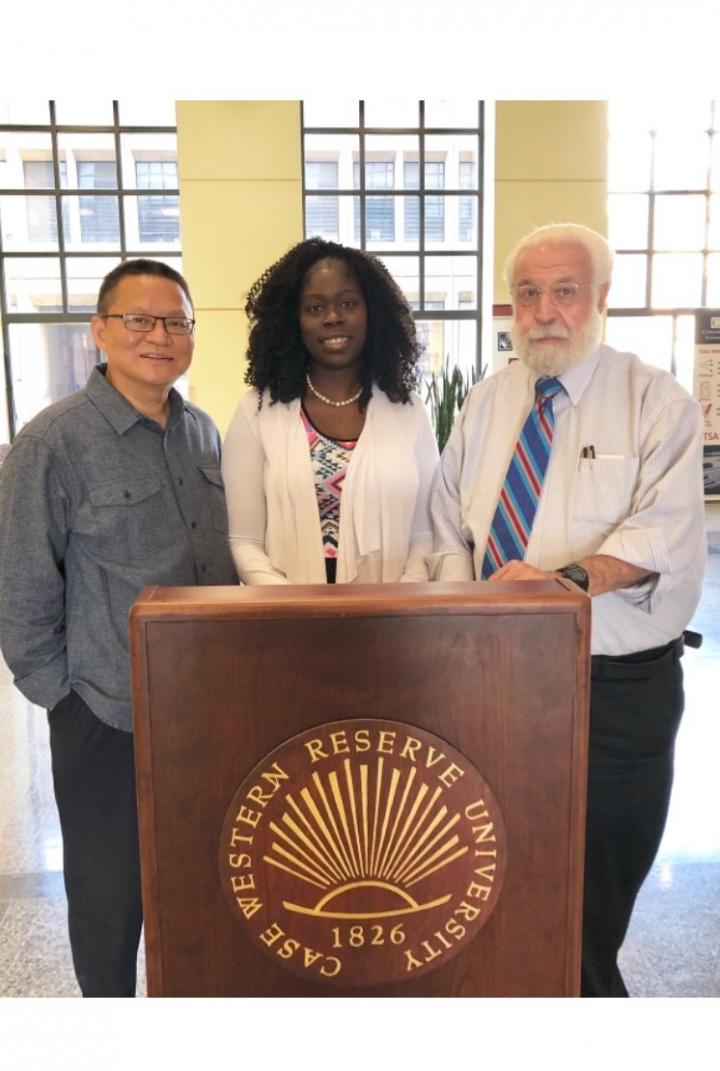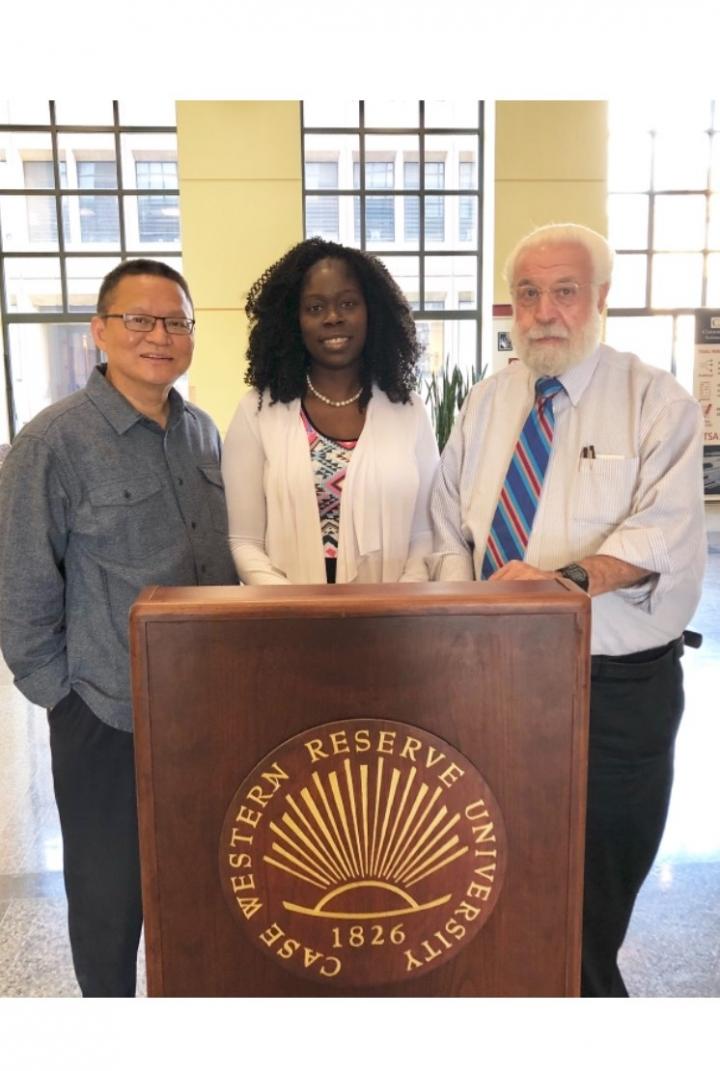
Credit: Case Western Reserve University School of Medicine
The Case Comprehensive Cancer Center has received a three-year, $3,194,947 grant from the National Cancer Institute to investigate colorectal and breast cancer health disparities. The grant is one of only four Specialized Programs of Research Excellence (SPORE) Planning Grant P20 awards given across the nation to address health disparities. It will provide the infrastructure for a new, comprehensive research program at Case Western Reserve University School of Medicine to study cancer health disparities at both molecular and population levels.
The new Cancer Disparities SPORE P20 program will examine racial differences in the development of colorectal and breast cancer–two leading causes of cancer death in the United States. The overarching goal of the program is to identify people at high risk for each cancer, and find common factors that drive racial disparities.
In their first project, researchers will use risk-assessment strategies to reveal genetic, lifestyle, and community factors associated with colorectal cancer across demographics. The second project will apply systems biology approaches to decode molecular mechanisms underlying racial disparities in triple negative breast cancer, including evaluating differences in treatment responses and survival. Both projects will integrate basic science research in cancer tissue samples with broader, population-based studies. Additional projects in development seek to understand relations between community-based factors and disparities in other cancers, including prostate and uterine.
"Racial disparities in these cancers persist, and are widening," said Nathan A. Berger, MD, Hanna-Payne Professor of Experimental Medicine and director of the Center for Science, Health and Society at Case Western Reserve School of Medicine. "This award is an opportunity to investigate several causes and consequences of these disparities."
Berger is one of three principal investigators who will lead the program. The other Multiple Principal Investigators include Li Li, MD, PhD, Mary Ann Swetland Professor of Environmental Health Sciences and associate director of Prevention Research at Case Comprehensive Cancer Center; and Monica Webb Hooper, PhD, professor at Case Western Reserve School of Medicine, and associate director of Cancer Disparities Research at Case Comprehensive Cancer Center. Additional lead investigators in this interdisciplinary translational program include: Vinay Varadan, PhD, Cynthia Owusu, MD, MSc, and William Schiemann, PhD, co-leaders of the Breast Cancer Project; Claudia Coulton, PhD, who together with Li lead the Colon Cancer Project; and Joe Willis, MD, who directs the Biospecimen Core.
The research program could identify genetic biomarkers for cancer that are specific to high-risk populations. It may also help explain why some populations are more likely to develop certain types of cancer, and factors that contribute most to cancer survival. Said Webb Hooper, "We are studying populations who have an undue burden of cancer. Our science has the potential to add to the body of knowledge around cancer disparities, and lead to treatments that benefit communities."
Added Li, "With a better understanding of factors affecting cancer disparities, we can promote medical and social policies that benefit specific populations."
SPORE awards were established by the National Cancer Institute in 1992 to promote collaborative, interdisciplinary, translational cancer research. The award to Li, Webb Hooper, and Berger is only the second SPORE given to Case Western Reserve. The first was awarded in 2011 to Sandy Markowitz, MD, PhD, to study gastrointestinal cancers.
"This new SPORE P20 award promotes translational research that integrates population studies with cutting-edge basic science. We are hopeful it will help delineate biological mechanisms underlying racial disparities, so we can ultimately reduce or eliminate them altogether," said Li.
###
For more information about Case Western Reserve University School of Medicine, please visit: case.edu/medicine.
Media Contact
Ansley Gogol
[email protected]
216-368-4452
@cwru
http://www.case.edu
Original Source
http://casemed.case.edu/cwrumed360/news-releases/release.cfm?news_id=1514&news_category=8





